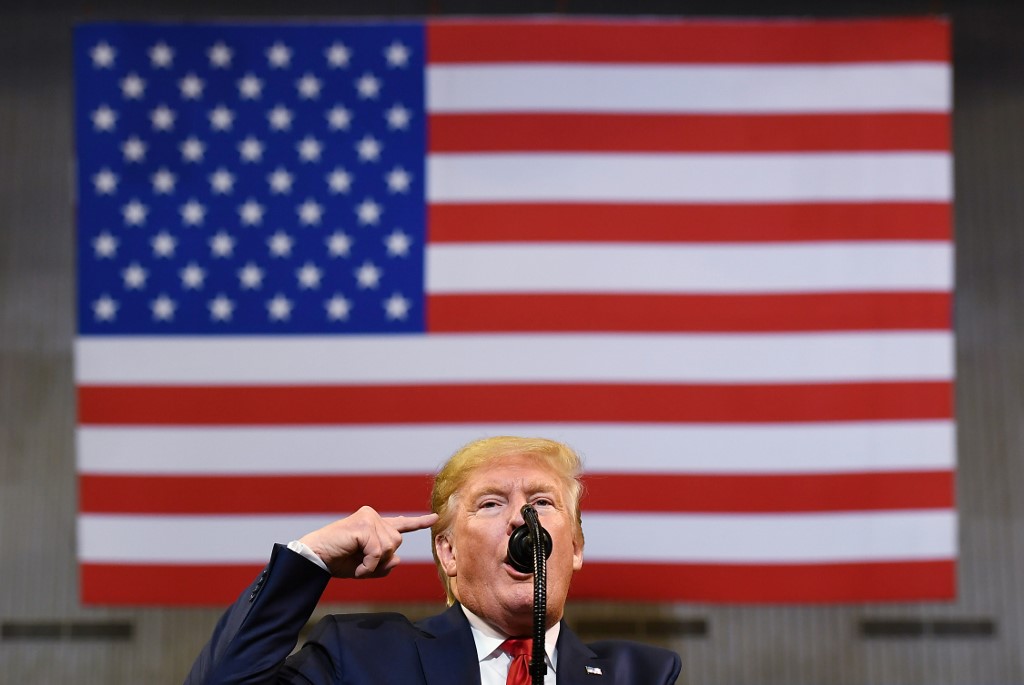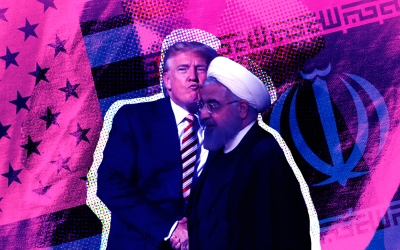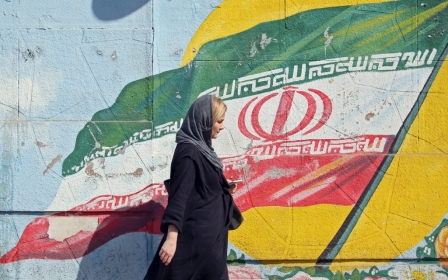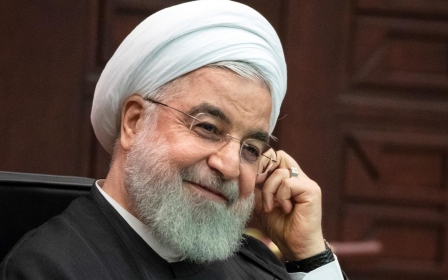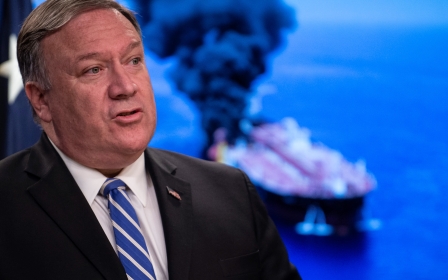How can we prevent a new Iran nuclear crisis?
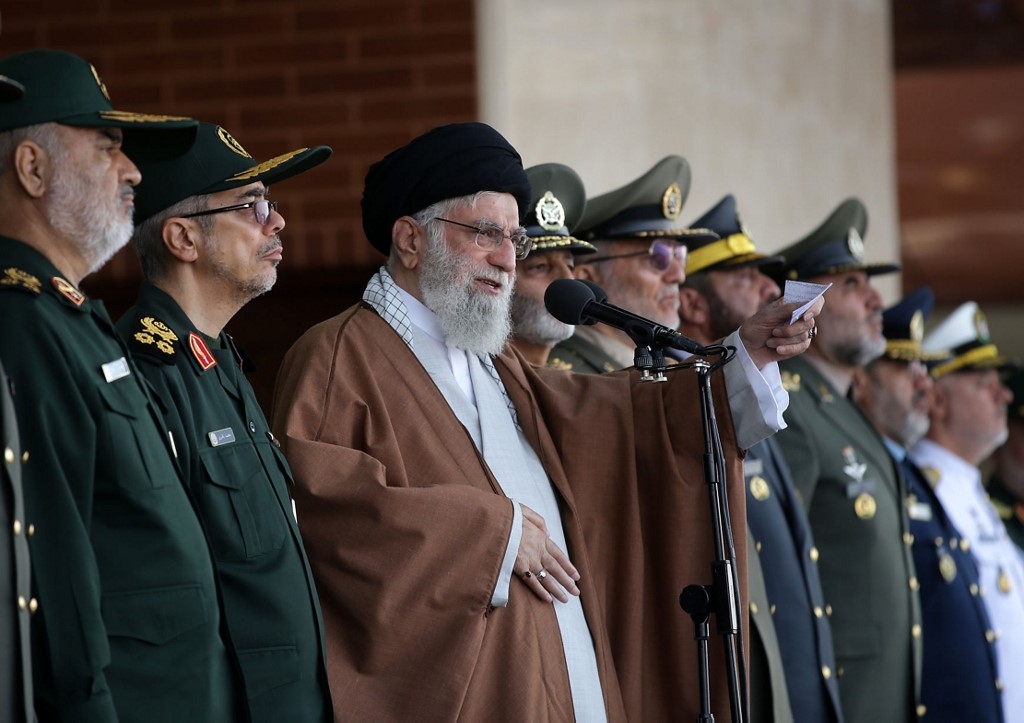
By all indications, the landmark Iran nuclear agreement is on the verge of extinction, notwithstanding Iran’s latest attrition of its obligations in response to the US exit and European inaction.
The big question is, what lies ahead?
Already, US Secretary of State Mike Pompeo has suggested that Iran is seeking a “nuclear breakout”, thus invoking the narrative predominant before the adoption of the agreement, known as the Joint Comprehensive Plan of Action (JCPOA). French President Emmanuel Macron has interpreted Iran’s nuclear moves as tantamount to withdrawing from the JCPOA, warning of grave consequences.
We are on the cusp of a new Iran nuclear crisis and unless the US re-adopts the JCPOA, there are virtually no prospects for a new deal, given Tehran’s rage at Washington for tearing up a healthy agreement and rewarding its compliance with a “maximum pressure” strategy aimed at strangulating Iran’s economy.
Raft diplomacy
New MEE newsletter: Jerusalem Dispatch
Sign up to get the latest insights and analysis on Israel-Palestine, alongside Turkey Unpacked and other MEE newsletters
Ironically, the Trump administration has tacitly conceded the significance of the JCPOA by allowing sanctions waivers for foreign companies working with Iran’s civilian nuclear programme. The administration, despite its incendiary rhetoric against Iran, has also allowed sanctions exemptions for India’s investment in Iran’s Chabahar port project and for Iraq’s energy trade with Iran, reflecting pragmatic attenuation of the anti-Iran confrontational strategy amid parallel US-Iran interests in Afghanistan, Iraq and against the Islamic State militant group.
One way to de-escalate tensions between the US and Iran is to engage in “raft diplomacy” - small diplomatic gestures to cross troubled waters, rather than the unrealistic goal of a “grand bargain”, such as a new nuclear agreement or even building a bridge between Tehran and Washington. Those who advocate such lofty objectives underestimate the atmosphere of distrust that has led Iran’s supreme leader to forbid any talks with the US.
There is a consensus in Iran that the road between Tehran and Washington travels through Riyadh
Prisoner exchanges, such as the one proposed earlier this year by Iran’s foreign minister, are an example of raft diplomacy. In this regard, Iran’s admission of having an “open case” on the former FBI agent missing in Iran, Robert Levinson, is a step forward.
US exemptions for the sale of airplane parts to Iran, viewed as a humanitarian gesture for the sake of the safety of Iranian passengers, would also fit this description.
Indeed, the basic premise of raft diplomacy is that the confidence-building measures needed to reset US-Iran relations on a healthy path are presently missing, and need immediate attention.
Alleviating pressures
Prudent raft diplomacy could re-engage the US with Iran through the deal’s dispute resolution mechanism known as the Joint Commission.
The Trump administration should use this forum to address its concerns, including the JCPOA’s so-called “sunset clause” that, hypothetically speaking, could be extended through mutual agreement or quid pro quo. A US nod to European efforts to finance trade with Iran, for example, could help alleviate the economic pressures facing Tehran.
Sadly, European officials have practically ceased their earlier criticisms of the US withdrawal from the nuclear deal, demanding Iran’s complete fulfilment of its JCPOA obligations without making a similar demand of the US. This prompted Iran’s legitimate response that Europe has reneged on its own obligations.
Absent the White House’s willingness to step back from its relentless economic warfare against Iran, Tehran’s rulers will likely use the nuclear lever for the foreseeable future until they see tangible signs of compromise on US President Donald Trump’s part.
Hinting at this is a recent statement by Iran’s deputy foreign minister, Abbas Araghchi, that Iran may rethink its “nuclear doctrine” under the present harsh circumstances - notwithstanding President Hassan Rouhani’s public lament that because of oil sanctions, the government faces an “extraordinary” budgetary crisis.
The path ahead
A US announcement that it will participate in the next meeting of the JCPOA’s Joint Commission, without making any commitments, would be a necessary and completely appropriate move, bound to generate the much-needed positive vibes that have hitherto been missing.
Although there is no guarantee that such steps would prevent the gradual meltdown of the JCPOA, at least they would show a timely evolution of Trump’s one-dimensional approach vis-a-vis Iran.
For Trump, under the heat of impeachment hearings and a re-election campaign that will need to show foreign policy successes, the imperative of exploring alternative scenarios with Iran is inescapable.
By initiating raft diplomacy, the Trump administration would stand a decent chance of eliciting a positive response from Iran, which has been offering an olive branch of security cooperation to its Arab neighbours in the Gulf under the banner of hope.
After all, there is a consensus in Iran that the road between Tehran and Washington travels through Riyadh.
The views expressed in this article belong to the author and do not necessarily reflect the editorial policy of Middle East Eye.
Middle East Eye delivers independent and unrivalled coverage and analysis of the Middle East, North Africa and beyond. To learn more about republishing this content and the associated fees, please fill out this form. More about MEE can be found here.


